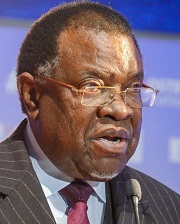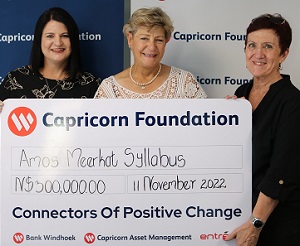
Geingob calls for a fundamental shift in how children are educated amid 4IR

The education system and industry have a relatively low capacity to react to the rapid technological changes and the impacts are visible through the low transition into the labour market, the President, HE Dr Hage Geingob said Wednesday.
Sustainable and inclusive industrialisation can be achieved through a fundamental shift in how children are being educated, Geingob said in a speech he delivered at the 4th Industrial Revolution (4IR) Conference event in Windhoek this week.
“One leverage point is equipping primary and secondary learners with the combination of verbal and written communication; logical and numerical skills, to nurture the ability to code and think computationally and by so doing, develop holistic problem-solving skills,” he added.
According to Geingob, it has become increasingly important to deliver multi-disciplinary training in institutions of higher learning, through blended curricula.
“To achieve this, investments into Research and Development (R&D) must be prioritized. A stronger compact is required between industry and institutions of higher learning, to identify priority areas for R&D and innovation, particularly as we apply the lessons from the COVID-19 pandemic,” he said.
Geingob said where 4IR is predicated mainly on Artificial Intelligence (AI) and where AI is the technique of making machines intelligent, it has become ever more important to become owners and developers of technology.
“The solution lies in us increasing our technological skills and national capacity to co-design and co-create contextually relevant technologies, across the various dimensions of our development including application to healthcare, energy, education, defence, agriculture, finance, trade and commerce,” he concluded.











































